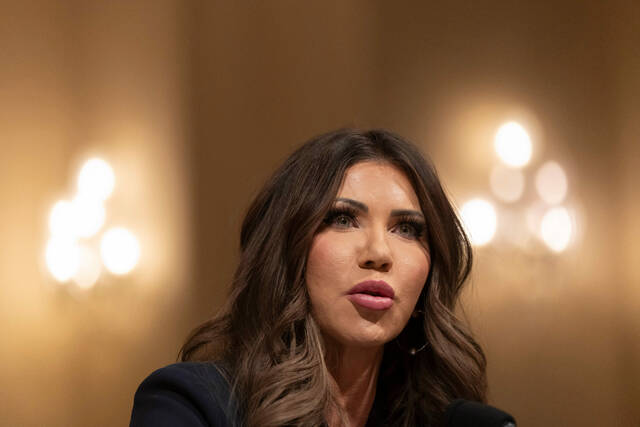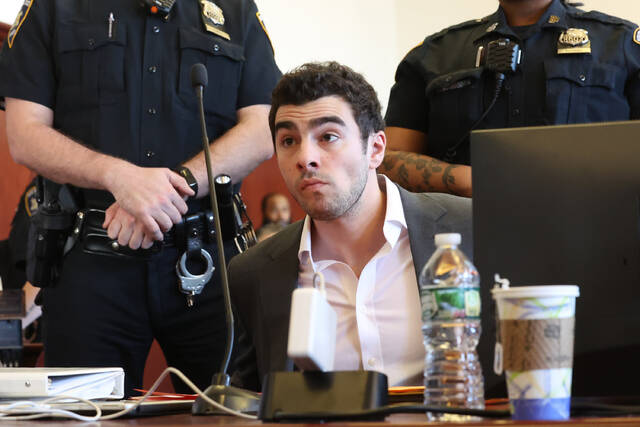AUSTIN, Texas — In a letter to U.S. Secretary of State Michael Pompeo, Gov. Greg Abbott said Friday the state will not allow refugees to resettle in Texas.
Under President Donald Trump’s Sept. 26 executive order, cities and states must provide their written consent to allow refugees to resettle within their areas. Nationwide, roughly 40 governors have consented or signaled their willingness to allow refugees in their states, making Texas the first state to bar their settlement.
Texas has long led the country as one of the states that resettles the largest number of refugees, a fact Abbott stresses in his letter, which was first reported Friday by The Daily Wire.
“Since FY2010, more refugees have been received in Texas than in any other state. In fact, over that decade, roughly 10% of all refugees resettled in the United States have been placed in Texas,” the letter reads.
But Texas has been “left by Congress to deal with disproportionate migration issues resulting from a broken federal immigration system,” Abbott writes.
Abbott pointed to the fact that 100,000 migrants were apprehended crossing the Texas-Mexico border in May 2019, and that individuals from 52 different countries were apprehended in Texas in June 2019, as “consequences” that the state has been left to work through.
“At this time, the state and nonprofit organizations have a responsibility to dedicate available resources to those who are already here, including refugees, migrants, and the homeless — indeed, all Texans,” Abbott wrote. “As a result, Texas cannot consent to initial refugee resettlement for FY2020.”
Russell Smith, the CEO of Refugee Services of Texas, said in a statement that Abbott’s decision reflects an ongoing confusion between border security, immigration processes and the U.S. Refugee Admissions Program.
“Refugees who arrive in the U.S. have legal documentation, have been fully vetted and security screened, and represent one of the most resilient, hard-working, entrepreneurial, and successful segments of the population,” Smith said.
Refugees who have been resettled in other states may still come to Texas after they have reached the U.S., a fact that Abbott acknowledges in his letter.
Abbott’s decision comes ahead of the Jan. 21 deadline for local officials and governors to inform the federal government of their decisions. Mayors of many of Texas’ largest cities had already submitted their consent to allow refugees in their cities, including Fort Worth Mayor Betsy Price, who had previously urged Abbott to do the same for the state as a whole.
Rev. John L. McCullough, the president and CEO of Church World Service — one of the three refugee resettlement agencies challenging the Trump administration’s executive order in court — said in a statement that Abbott’s decision was cruel.
“This decision will devastate refugee communities, lead to family separation for refugee families and leave refugees, former refugees and United States citizens without supportive services,” McCullough said in a statement.
Krish O’Mara Vignarajah, the president and CEO of Lutheran Immigration and Refugee Service — another agency challenging the executive order — said she was “incredibly disappointed but not altogether shocked.”
“What this decision did was take away local authority from counties and cities to make their own individual determination, which is tragic because there are so many congregations and communities that do care for a variety of reasons — deeply and passionately — about welcoming refugees,” Vignarajah said. “This feels very heavy-handed.”
Along with the urging of mayors and religious groups, nine Democratic state lawmakers had also sent a letter to Abbott Thursday, stressing that the issue is “both a moral and an economic one.”
“With the strength of our economy and our people, we have ample resources to help refugees — it is our moral obligation to do so,” Rep. Vikki Goodwin, a Democrat from Austin who signed the letter, said in a statement after Abbott’s decision.
Abhi Rahman, a spokesman for the Texas Democratic Party, said Abbott’s decision “is in complete opposition to our Texas values.”
“Refugees are not political pawns and bargaining chips to advance anti-immigrant policies,” Rahman said in a statement. “Governor Abbott’s decision will lead to more innocent people dying.”
State Rep. Chris Turner, a Democrat from Grand Prairie and chair of the House Democratic Caucus, also lamented Abbott’s move, and said on Twitter it’s “a sad day” for Texas.
“There’s simply no excuse for this mean-spirited and short-sighted decision,” Turner wrote. “Just another bone toss to the Tea Party.”
Abbott removed the state from participating in the federal resettlement program in 2016 after the U.S. Office of Refugee Resettlement didn’t approve a state plan that would have required national security officials to ensure that refugees don’t “pose a security threat” — part of the state’s efforts to keep out Syrian refugees.
Refugees were still permitted to resettle in Texas, with the help of resettlement agencies that are funded by the federal government.
The Trump administration’s executive order is currently being challenged in court. Lutheran Immigration and Refugee Service, Church World Service and the Hebrew Immigrant Aid Society filed a lawsuit against the Trump administration in November in an attempt to stop the order from being enforced. Filed in U.S. District Court in Maryland, the lawsuit alleges Trump’s order violates federal law and is the latest attempt to dismantle the U.S. refugee resettlement program.
“Our hope is that the executive order will be deemed illegal and unconstitutional so it won’t allow for this type of veto process to have any effect,” Vignarajah said of Abbott’s decision.
A federal judge heard arguments in the case on Wednesday, and is set to issue a ruling soon, according to the Associated Press.
In September, Trump also announced 18,000 refugees would be admitted to the U.S. for fiscal year 2020 — a low since the program began in 1980 and a reduction of 40% from the previous year’s cap of 30,000.
The cap comes at a time when there are about 25.9 million refugees worldwide — some of the highest numbers the world has ever seen — according to the United Nations High Commissioner for Refugees.
“Now is not the time to abandon Texas’ historic role in refugee resettlement,” Smith said, “rather, this is a time to renew our commitment to helping refugees resettle in Texas.”
In fiscal year 2019, Texas led the nation, resettling 2,458 refugees, or 8.19% of all refugees resettled in the U.S. during that time, according to federal figures.
While Texas has the highest number of refugees resettled nationwide, it’s a sharp decline from just a few years ago. In fiscal year 2016, 7,802 refugees resettled in Texas, and at its peak, 8,212 refugees resettled in the state in fiscal year 2009.








